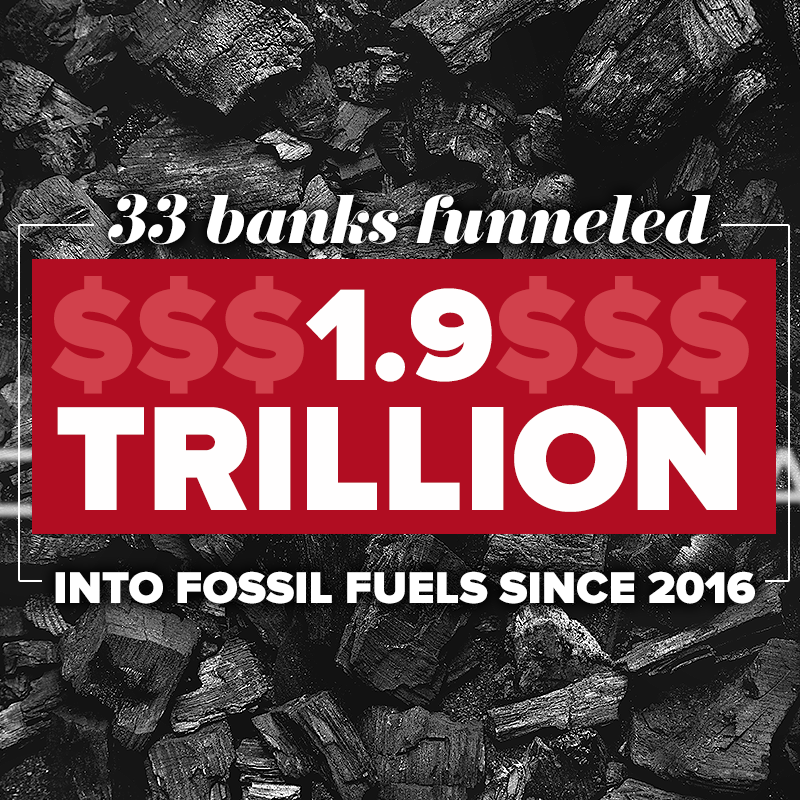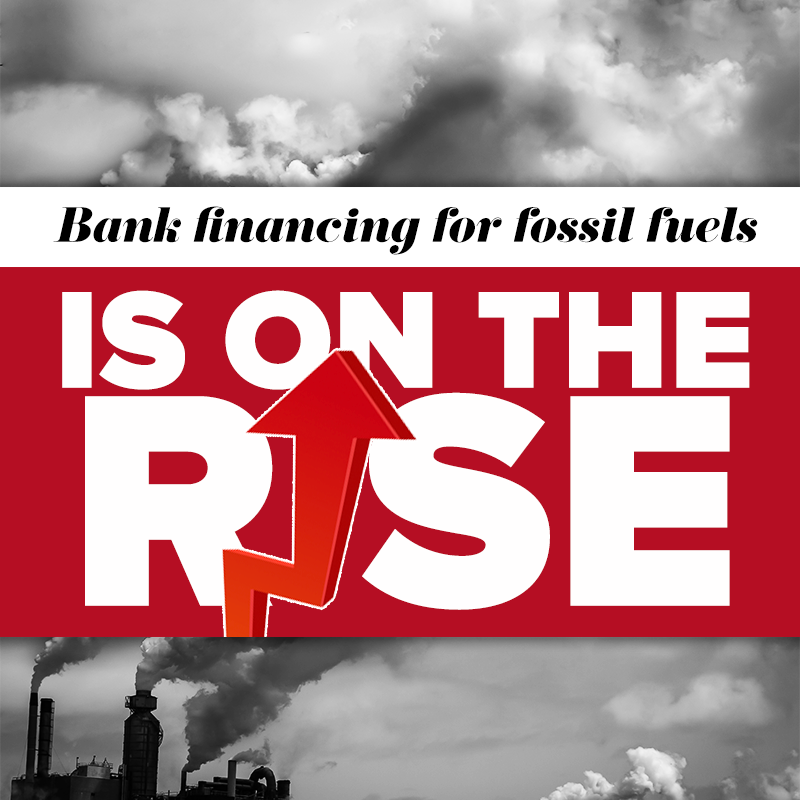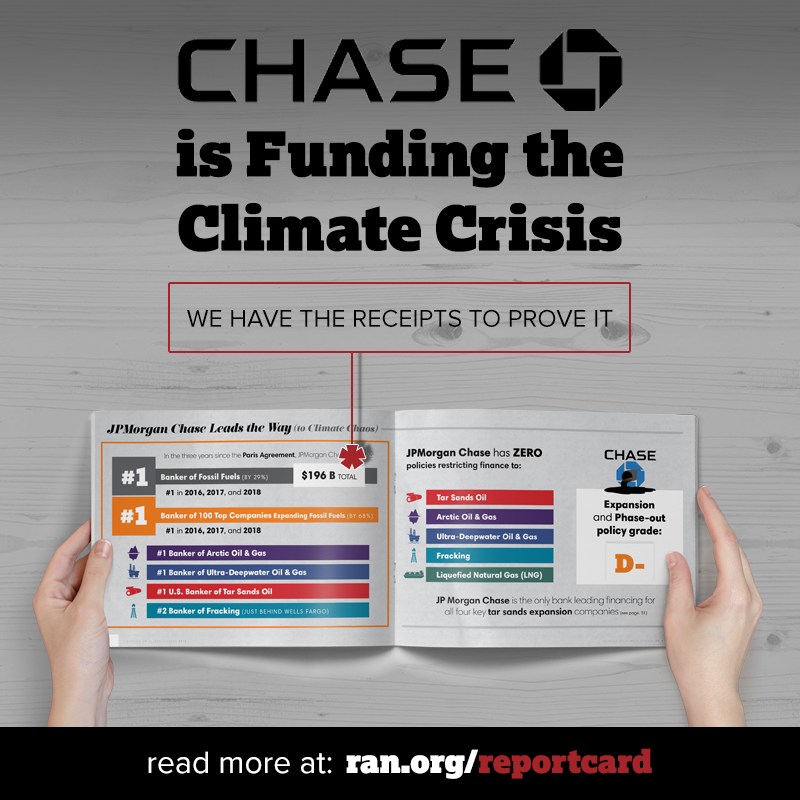It’ll come as no surprise to regular 198 methods readers and activists that since the Paris climate agreement was signed in late 2015, global banks have invested $1.9 trillion in fossil fuels. About half of it going to companies like Energy Transfer Partners, Transcanada, and others investing in a massive expansion of fossil fuel projects at exactly the moment climate scientists tell us we have 12 years to radically reduce emissions.
It’s all in the new report Banking on Climate Change: Fossil Fuel Finance Report Card 2019 by Rainforest Action Network, BankTrack, Indigenous Environmental Network, Sierra Club, Oil Change International and Honor the Earth, and endorsed by more than 160 organizations ― including us!
Can you help us fight back? Click here to host or attend one of dozens of protests at local bank branches on April 10 and call out banks dirty investment in climate chaos.
In 2015, J.P. Morgan Chase CEO Jamie Dimon supported the Paris Climate agreement and pledged and investment strategy “consistent with a pathway toward low greenhouse gas emissions.” But the report shows he’s been anything but consistent. In fact, Chase is the number one bank investing in fossil fuels with $196 billion invested in coal, Arctic oil and gas, fracking, tar sands, and other fossil fuels ― in the last 3 years alone!
Lots of European banks like BNP Paribas and ING Bank have taken steps to limit their funding of new fossil fuel projects. But US Banks are continuing to spend $1.9 Trillion on new fossil fuel projects ― and what’s worse, their investment in climate chaos is actually increasing.
But if we act together, we can make a difference. The Dakota Access pipeline got $2.5 billion of its $3.8 billion in total funding from banks like Chase and Wells Fargo. Without those loans, they simply wouldn’t have enough money to build new pipelines, coal terminals or fracked gas facilities.
So thousands of us joined forces to move our money, demand better banking and #DefundDAPL. Now, I need your help to take action again. Here’s how:
- Check out the report and share it with your friends online.
- You can share it on Facebook, on Twitter, or email this page to your friends.
- Join us as we take action across the country to deliver the message loud and clear that funding climate disaster will not be tolerated.





Pingback:Taking the fight to #fossilbanks | 198 methods